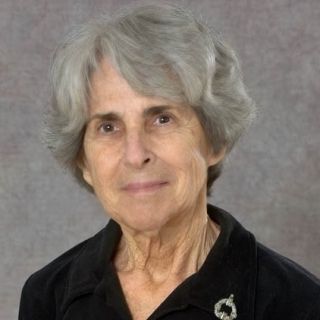Article
How AIDS Activism Impacted Activists
Author(s):
The first study to explore long-term impact of AIDS activism finds posttraumatic stress responses concurrent with posttraumatic growth.
Judith Rabkin, PhD, New York State Psychiatric Institute and Department of Psychiatry, Columbia University

Judith Rabkin, PhD
Three decades after the AIDS Coalition to Unleash Power (ACT UP) arguably hastened the science, treatments and services for persons with HIV/AIDS, researchers have found long-term effects on the activists include concurrent posttraumatic stress responses and posttraumatic growth that are distinct from the experiences of persons affected by the illness but not involved with the campaign.
In the study, Judith Rabkin, PhD, New York State Psychiatric Institute and Department of Psychiatry, Columbia University, New York, NY and colleagues, including 2 principals of the Treatment Action Group (TAG), posed the question, "What happens when members of a marginalized community, threatened both by a rapidly fatal disease and by an unresponsive government, organize to fight for survival and survive?"
Rabkin recounted to MD Magazine that she began thinking about the study after reading the obituary of Spencer Cox in the New York Times in 2013.
"He died of an AIDS-related illness, having stopped taking his medications," Rabkin said. "Spencer had been a leading activist and ACT UP member, and in the mid-2000's he founded the Medius Institute, dedicated 'to improving the health, well-being and longevity of gay men.' He was interested in the immediate and long-term psychological effects associated with the traumatic experiences and painful memories of the AIDS epidemic, specifically in the prevalence of depression, PTSD (posttraumatic stress disorder) and substance use."
Regretting that she had not reached out to Cox to offer the psychiatric services that were being provided to patients afflicted with AIDS, she decided with colleagues to conduct a study that might ascertain particular conditions being experienced by the activists of that period.
"The 4 of us then met to develop a proposal to interview former members of ACT UP NY, which led to this study," Rabkin said. "We assembled a community advisory board who helped both in terms of content and recruitment of participants."
The study to explore long-term impact of AIDS activism on current adjustment examines the prevalence of PTSD, depression and posttraumatic growth among the person participating in ACT UP during the peak of the campaign between 1987—1992. The researchers administered a 90-minute semi-structured interview and 6 validated self-report scales to an activist population of 102 men (40% HIV-positive) and 23 women, and to a control group of 50 individuals with similar demographic and illness experience but without involvement in demonstrating and organizing groups.
The researchers found that 17% of the activist group reported current symptoms suggesting PTSD, which they characterize as slightly higher than the range in general population studies. Symptoms consistent with depression were reported by 8% overall in this group, with higher rates among those who are HIV-positive. There was a substantial overlap among participants with the approximate diagnosis of depression and PTSD.
There was striking unanimity of response in the 93% of the activist group, independent of concurrent PTSD or depression, that described enhanced sense of self, belief in change and empowerment. The consistent reporting of an enhanced sense of self, led Rabkin and colleagues to conclude that the posttraumatic stress responses and posttraumatic growth could be independent, parallel dimensions rather than different endpoints of a continuum.
Although the researchers acknowledge that the study was not designed to fully define a relationship between traumatic symptoms with ACT UP experiences, they credit the concept of "unit cohesion" (from Sebastian Junger's work with military combat troops) for these apparent positive effects of participation.
"A major motive for joining ACT UP in 1987 was to be part of a community, to fight together against public indifference and lack of medical progress," Rabkin told MD Magazine. "A major sustaining element was the network of friendships and sense of group support, and when we asked participants what they most missed about the ACT UP days, the most common response was loss of friendships, loss of network."
The study, "Trauma and Growth: Impact of AIDS Activism" was published May 24 in AIDS Research and Treatment.





